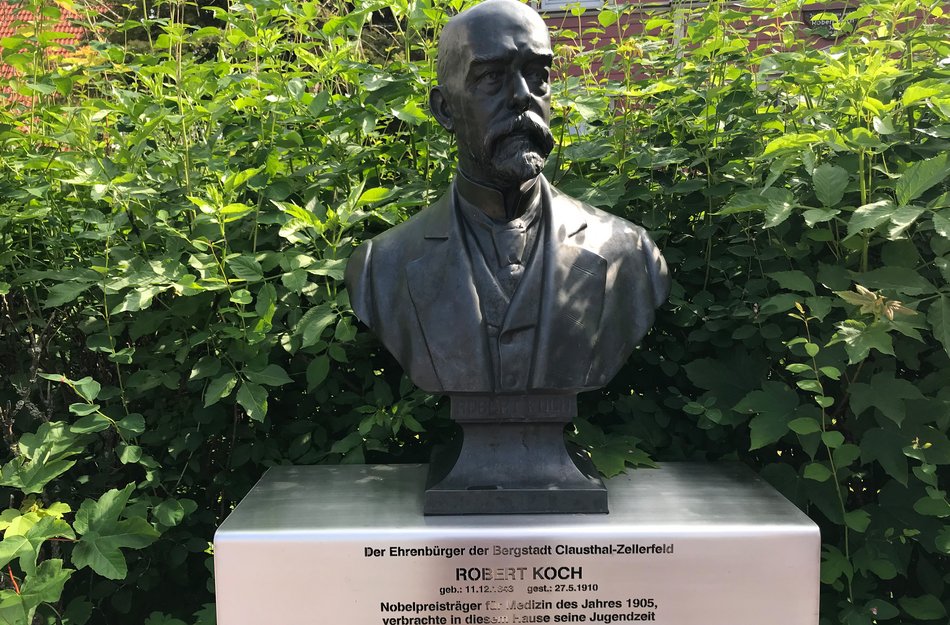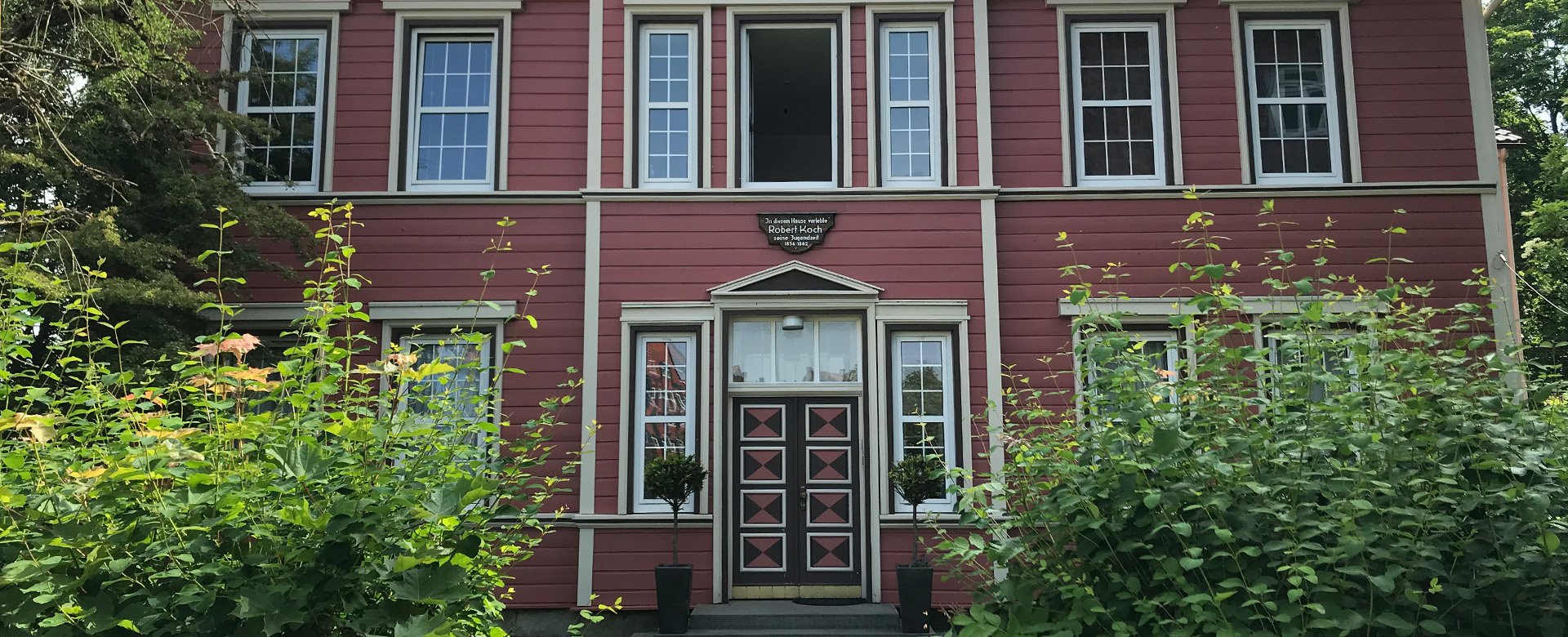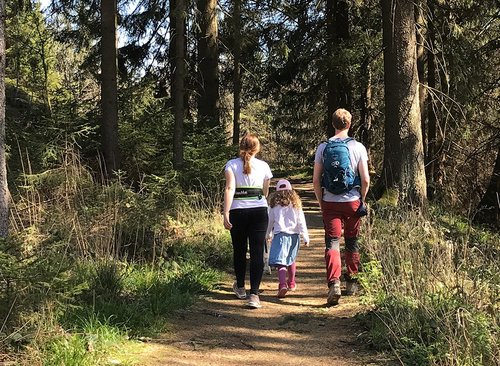Robert Koch city tour
On the trail of the doctor from Clausthal-Zellerfeld
Did you know that Robert Koch was from the Upper Harz region? The Nobel Prize winner was born in 1843 in our beautiful mining town of Clausthal. He was the third child of a mining office manager and had ten siblings. You can still visit his birthplace today. Why not follow in his footsteps on the Robert Koch city tour? Perhaps the Harz nature awakened his early interest in the natural sciences. After school, he first studied philology and then medicine in Göttingen. Even as a child, he wanted to become a travelling naturalist. His wish came true: Clausthal's famous son researched many diseases in faraway countries.
He revolutionised medicine by discovering that certain diseases were caused by microorganisms and not, as previously assumed, by toxic vapours from the soil. The scientist and bacteriologist became the director of the "Koch Institute" for infectious diseases in 1891. It is still known today as the "Robert Koch Institute" and is the central federal institution in the field of public health and the national public health institute. In 1905, Koch was awarded the Nobel Prize in Medicine for his discovery of the tuberculosis pathogen. He died in 1910 as a result of a severe heart attack.
Rediscover Clausthal-Zellerfeld
The Robert Koch city tour in detail
On the city tour through beautiful Clausthal, you will visit the places that were important to the young Robert Koch. You will pass the house where he was born, the church where he was baptised, his grammar school, the family grave, his home and the former Robert Koch School (now the Mathematical Institute of the TU). The route also takes you to his parents' house with the bust of the Nobel Prize winner, the Robert Koch Hospital, Robert-Koch-Straße and the new cemetery. The Mining Museum houses an exhibition on the life and work of the famous Clausthaler.
The entire tour, excluding the visit to the Upper Harz Mining Museum, takes around 2.5 hours. The Upper Harz Mining Museum is 2.2 kilometres from the starting point. There is also a shortened tour that takes about an hour.

Detailed facts and figures about Robert Koch
In the 19th century, infectious diseases such as cholera, tuberculosis, diphtheria and wound infections were widespread and many people worldwide died from them every year. Robert Koch got to the bottom of this. Robert Koch had his first scientific success in 1876, when he proved that infectious diseases are caused by microorganisms. It was remarkable that he carried out his research in a laboratory he had set up himself in his home and yet did so with precision and a logical structure of chains of evidence.
It was during his time in Berlin that Robert Koch and his colleagues made their breakthrough. They recognised that diseases can be caused by bacteria. This made it possible to recognise infectious agents and routes of infection, whereupon he developed forms of therapy and preventive measures. His research was supported by new scientific methods, such as microphotography, staining techniques and the use of solid culture media for cultivating bacteria. On 24 March 1882, he became world-famous with his overnight announcement of the discovery of the tuberculosis pathogen, and in 1905 he was awarded the Nobel Prize for Medicine for the discovery of tuberculosis bacilli.
To research cholera, he travelled to Calcutta in India in 1883 and analysed the outbreak of the disease there, successfully identifying the Vibrio cholerae bacterium. However, the Italian anatomist Filippo Pacini, who had already discovered the pathogen under the microscope in 1854, also helped here. In the following years, Koch worked as a professor and director at the Institute of Hygiene at the Friedrich Wilhelm University in Berlin and passed on his knowledge to numerous interested doctors from all over the world. There he also developed the cure "tuberculin", which later turned out to be ineffective.
In July 1891, the "Royal Prussian Institute for Infectious Diseases" was opened and headed by Robert Koch as the "Koch Institute". In 1900, a new institute building was built in Berlin-Wedding and is still the "Robert Koch Institute" today. He then went travelling and researched various tropical diseases, malaria and sleeping sickness. Koch died on 27 May 1910 at the age of 66. A memorial plaque still hangs on the building of the local Harz Clinic today, commemorating the world-famous physician and his achievements in science.













